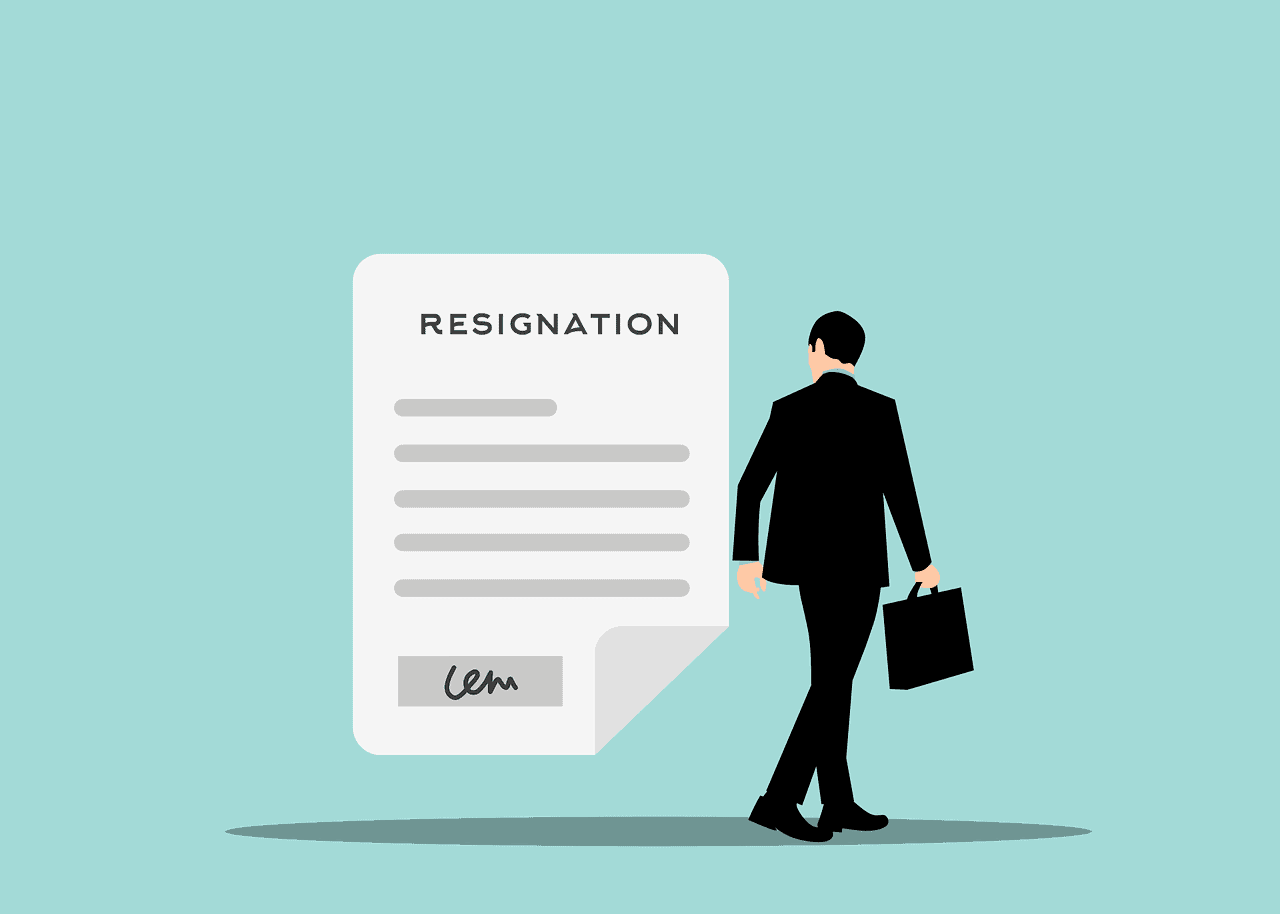Why It’s Important to Resign Professionally
Resigning professionally is about more than just handing in a letter. It’s about leaving on good terms, maintaining relationships, and ensuring that your departure doesn’t burn bridges. Here’s why this matters:
Preserving Your Professional Reputation
Your reputation in the industry is valuable. By resigning professionally, you show respect for your current employer and colleagues, which can lead to strong references and future opportunities.
Ensuring a Smooth Transition for Your Team
A well-handled resignation helps your team adjust to your departure. This consideration can enhance your professional image and leave a lasting positive impression.
Steps How To Resign From A Job Professionally
Resigning isn’t just about writing a letter. Follow these steps to ensure you leave your job in the best possible way:
1. Reflect on Your Decision
Before making any moves, take the time to reflect on your decision. Are you leaving for the right reasons? Is this the right time? Consider the impact on your career and personal life.
2. Check Your Employment Contract
Review your employment contract or agreement. Understand the notice period required, any non-compete clauses, and other legal obligations. This ensures you’re fully prepared to meet your contractual obligations.
3. Write a Resignation Letter
Craft a professional resignation letter. Be clear, concise, and positive. Mention your reason for leaving, express gratitude for the opportunity, and provide your intended last working day. Avoid negativity and keep the tone respectful.
4. Plan Your Exit Strategy
Develop an exit strategy to minimize disruption. This could include training a replacement, documenting your tasks, or offering to assist in the transition. Communicate this plan to your manager during your resignation meeting.
5. Schedule a Face-to-Face Meeting
Resign in person if possible. Request a private meeting with your manager to discuss your resignation. Be honest, but tactful, about your reasons for leaving, and reiterate your commitment to a smooth transition.
6. Manage Your Workload
Continue to perform your duties diligently during your notice period. Complete any outstanding projects and assist in the handover process. This demonstrates your professionalism and commitment.
7. Leave on a Positive Note
Say goodbye to your colleagues with grace. Whether through a farewell email or a small gathering, express your gratitude and share your contact information to stay in touch.
Common Mistakes to Avoid For How To Resign From A Job
Burning Bridges
Avoid leaving on bad terms. Even if you’re unhappy, maintain professionalism. The industry is smaller than you think, and word travels fast.
Neglecting Your Responsibilities
Don’t slack off during your notice period. Your work ethic during this time will be remembered and can impact future opportunities.
Failing to Prepare for an Exit Interview
An exit interview is an opportunity to provide constructive feedback. Be honest but diplomatic, focusing on areas for improvement rather than airing grievances.
Conclusion
Resigning from a job is a delicate process that, when handled correctly, can preserve your professional reputation and open doors for future opportunities. By following the steps outlined in this guide, you can leave your current role with integrity, respect, and confidence. Remember, how you leave a job is just as important as how you enter one.
Frequently Asked Questions (FAQs) About Resigning from a Job
How much notice should I give when resigning from a job?
The standard notice period is two weeks, but it may vary depending on your employment contract or company policy. Review your contract to determine the required notice period, and try to give as much notice as possible to ensure a smooth transition.
Do I need to provide a reason for my resignation?
While it’s not mandatory to provide a detailed reason in your resignation letter, it’s generally considered polite to offer a brief explanation, especially if you’re leaving on good terms. However, you should avoid negative or critical comments about the company or colleagues.
What should I include in my resignation letter?
Your resignation letter should be brief and professional. Include your intention to resign, the date of your last working day, a brief reason for leaving (if you wish), and a thank you to your employer for the opportunity.
Can I resign via email or do I need to do it in person?
Resigning in person is the most professional approach. If an in-person meeting isn’t possible, a video call or phone conversation is the next best option. Sending a resignation email can be appropriate in certain situations, but it’s generally better to follow up your conversation with a formal letter or email.
How do I handle questions from colleagues after resigning?
Be honest but tactful. You can share general reasons for your departure, such as career growth or personal reasons, without going into too much detail. It’s important to stay positive and professional to maintain good relationships.
Should I stay connected with my current colleagues after resigning?
Yes, maintaining a professional network is valuable for your future career. Connect with your colleagues on LinkedIn and other professional networks, and consider sending a farewell message with your contact information to stay in touch.
What should I do if I receive a counteroffer after resigning?
Carefully evaluate the counteroffer and consider your long-term career goals. Sometimes a counteroffer can address immediate concerns, but it’s essential to think about whether staying aligns with your broader professional aspirations.
Is it okay to take time off between jobs after resigning?
Taking time off between jobs is perfectly acceptable if your financial situation allows it. Use this time to recharge, reflect on your career goals, and prepare for your next role.
Subscribe To Jobs Advisor YouTube




